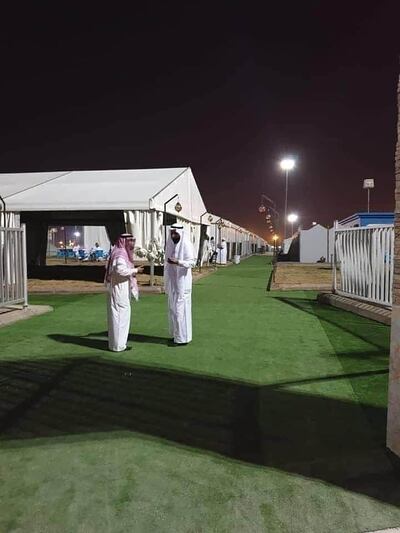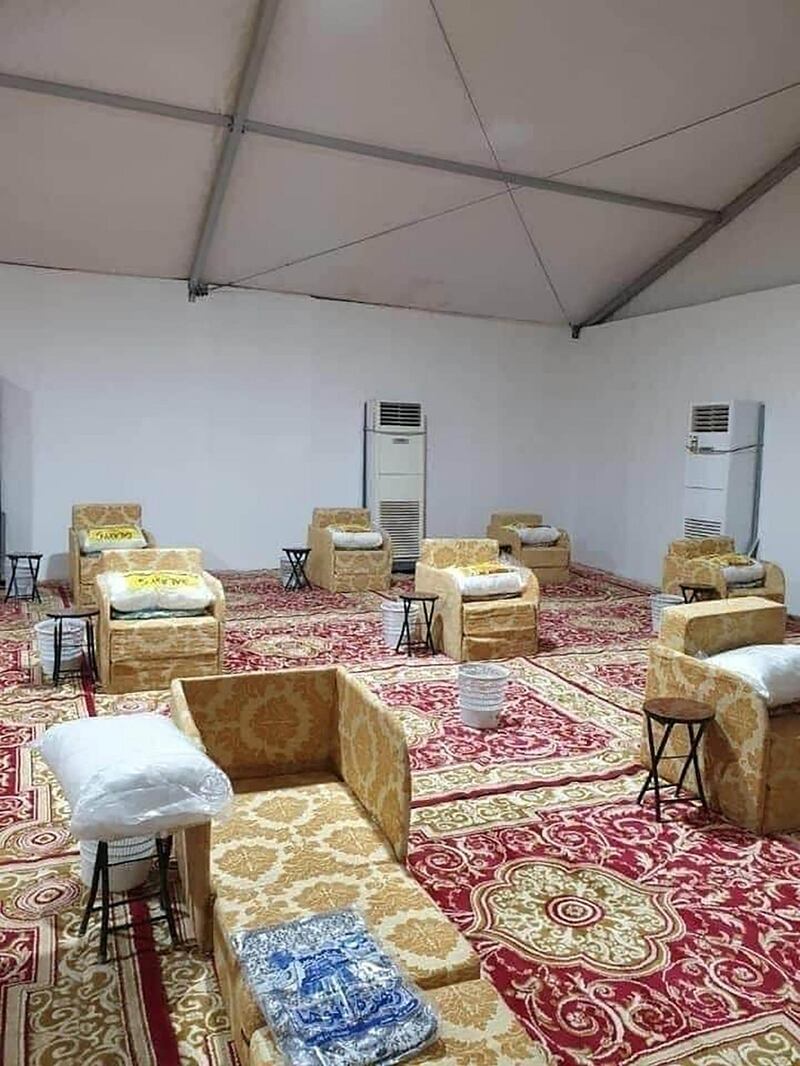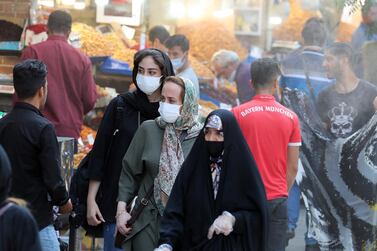Specially selected pilgrims began a seven-day quarantine period in Saudi Arabia on Sunday in preparation for a greatly reduced Hajj.
The annual pilgrimage, which begins on July 28 and ends on August 2, will include 1,000 people.
The number of pilgrims was restricted as part of measures to halt the spread of coronavirus and is a fraction of the millions who usually attend.
Pilgrims from outside the kingdom are barred from travelling.
Saudi citizens make up 30 per cent of those taking part, with foreigners living in the kingdom accounting for the rest.
"We ask God to grant success to the pilgrims to perform their rituals in a safe and secure manner, and to make their pilgrimages justified and their endeavours thanked," Saudi's Ministry of Hajj and Umrah tweeted.
The 1,000 pilgrims were selected from healthcare workers and security personnel on Saudi Arabia’s Covid-19 recovery database.
The Hajj guidelines also mandated that foreign residents in Saudi Arabia who want to participate this year should be between the ages of 20 and 50 and have not performed the Hajj before.
Residents from 160 countries were chosen to perform the Hajj this year.
Saudi Arabia said their selection represented a "token of appreciation for their role in providing care" during the pandemic.
Hajj will look different this year, owing to a series of safeguards taken to ensure the safety of pilgrims.
All those undertaking the ritual in Mount Arafat and Mina must stay in designated areas, stick to the assigned walking route, wear a face mask at all times, maintain physical distancing and only eat the food provided.

The kingdom also handled accommodation for the pilgrims, assigning them tents to ensure there are no more than 10 pilgrims per 50 square metres.
Pilgrims must maintain a distance of at least 1.5 metres between each other from all sides and crowding should be avoided at wash rooms.
All pilgrims will be given sterilised pilgrim kits, bags of sterilised gravel, sanitiser, masks and prayer mats, among other items
They will not be permitted to share any items they are given or bring with them.
Authorities will also use 50 buses to move pilgrims along the route, but the vehicles will remain only 50 per cent full. Groups will be assigned a bus that will transport them throughout the different stages of the Hajj.
Once the pilgrimage has been conducted, pilgrims will undergo a second quarantine period.






